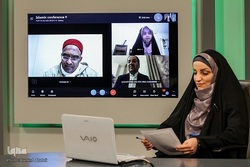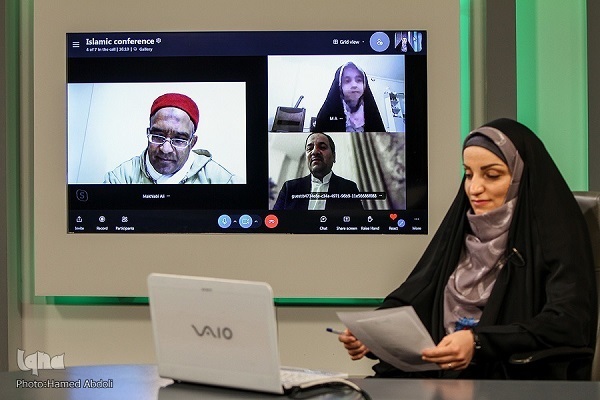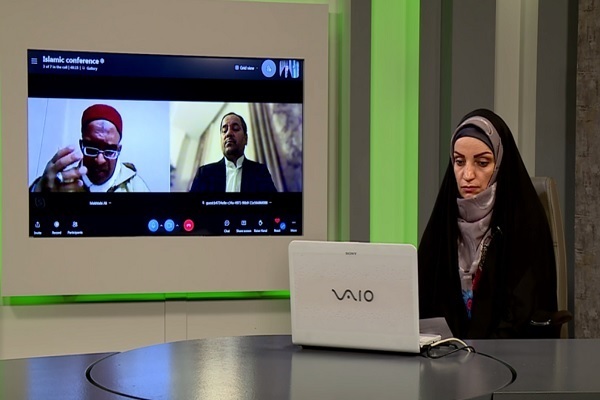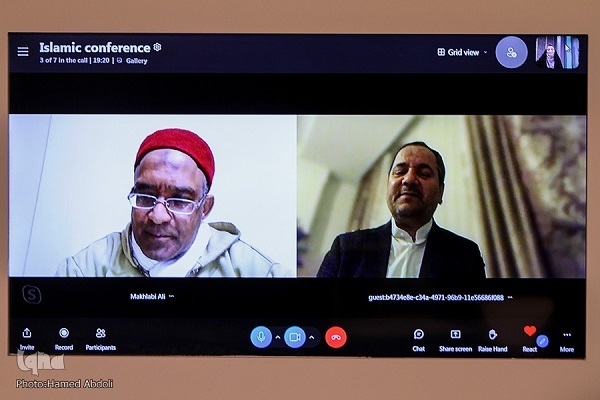Webinar Discusses Quranic Studies in Tunisia


“Quranic Studies in Tunisia; Currents and Approaches” was the title of the online seminar, held on the occasion of the holy month of Ramadan in cooperation with the Islamic Culture and Relations Organization and the Iranian Cultural Center in the North African country.
Ali Muhammad al-Mukhalibi, a professor of Islamic civilization at Zaytuna University and Seyed Hassan Esmati, Quranic researcher and former Iranian cultural attaché in Tunisia, were the two speakers at the program.
Mukhalibi said there is no such field of study under the name of Quranic studies in his country.
He said Quranic studies are taught at university within different fields of humanities.
The scholar said he got interested in Quranic sciences after meeting with a number of Iranian, Iraqi and Lebanese scholars and decided to seriously pursue this field in Tunisia.
He then held a number of forums at the Masarat Center for Philosophical and Humanities Studies with the aim of collecting different views and approaches of scholars and thinkers to this field.

Mukhalibi added that the center hosted many small and big forums and also published five volumes of a journal named Midad, each featuring some ten papers in Arabic, French, and English.
Each volume of the journal, which is about 400 pages, features one important subject in the field of Quran and history, he noted.
There have been papers by Iranian scholars like Mahmoud Vaezi and Zeiban Sadat Qavam published in Midad, he added.
“We also used some Orientalist studies (in the field), especially new Quranic studies (of Orientalist).”
He noted that the journal is published in 500 copies and distributed among academic centers in Tunisia.
Mukhalibi said he believes the Hoy Quran is the pivot and center of all thoughts and developments in the Muslim world and the foundation for building the new Islamic civilization.
He then referred to approaches to interpretation of the Quran in Tunisia and said there are three main approaches attributed to scholars Mohamed Mukhtar Salami, Yusuf al-Sidiq and Talibi.

He said the first one tries to follow the same approach of previous Mufasirs (Quran interpreters) while also including some philosophical and mystic interpretations.
It is a simple and easy to read interpretation that does not discus secondary meanings of verses, he stated.
According to Mukhalibi, Yusuf al-Sidiq seeks to use Western scholarly methods in Quranic fields and considers it necessary to make a distinction between texts and meanings.
He said the third approach is a combination of the two previous ones and tries to find solutions in the Quran for issues facing Muslims.
The other speaker, Esmati, in his address highlighted the status of the Quranic studies in Tunisia.
He said the African school of Quranic studies began in Tunisia’s Kairouanwith Aqaba ibn Nafi, which shows the deep historical root of such studies in the country.
Esmati also referred to the Quranic ties between Iran and Tunisia and said the interactions between the two countries’ Quranic scholars should develop significantly.



